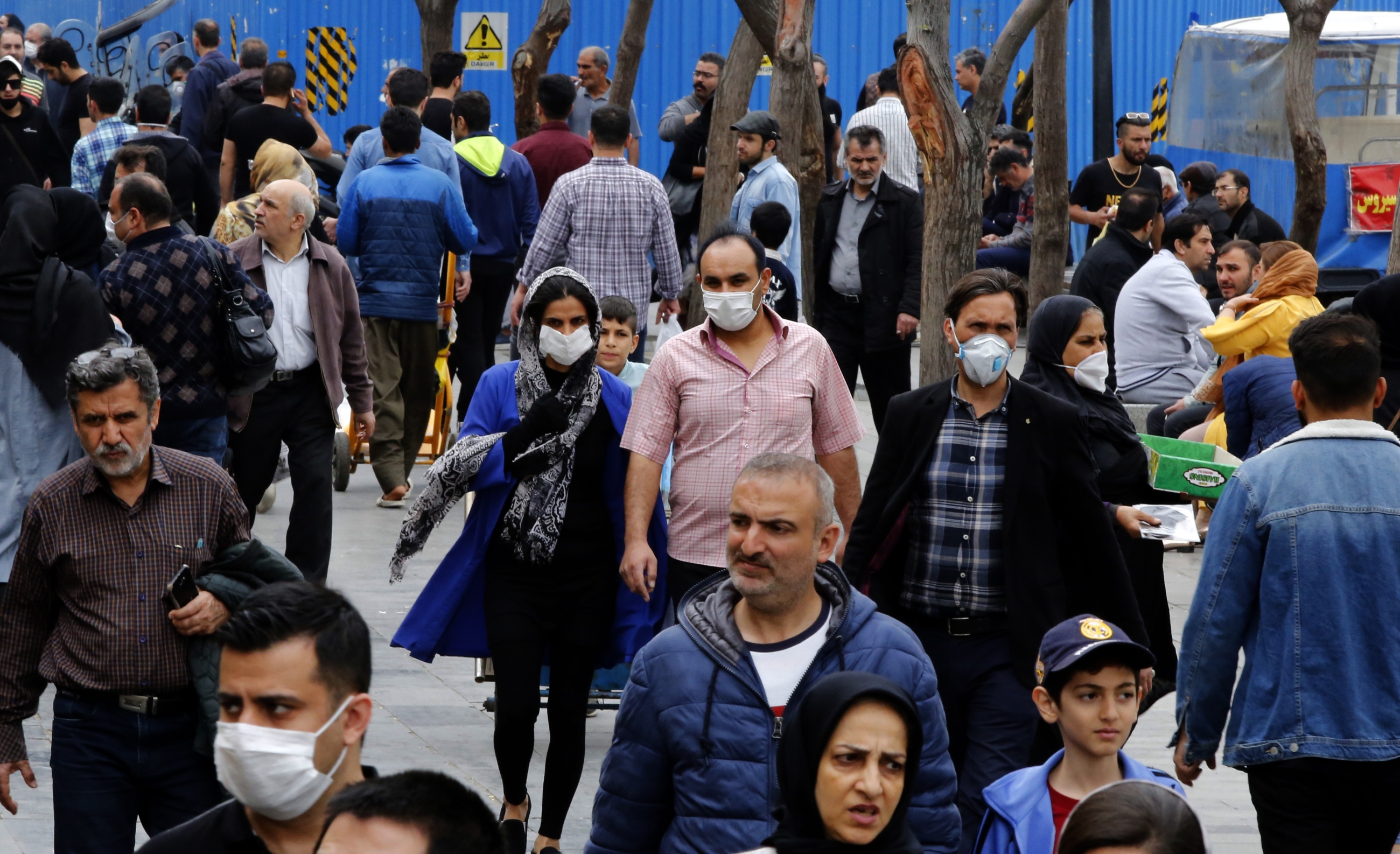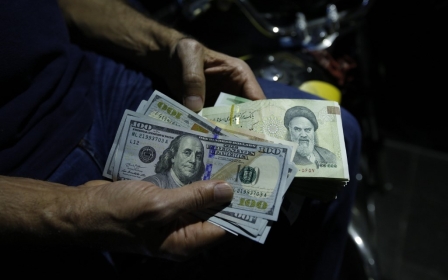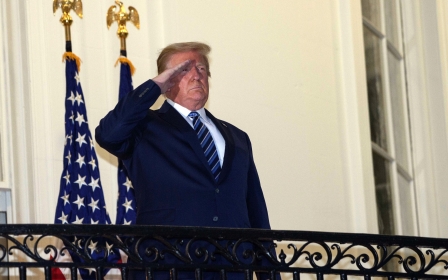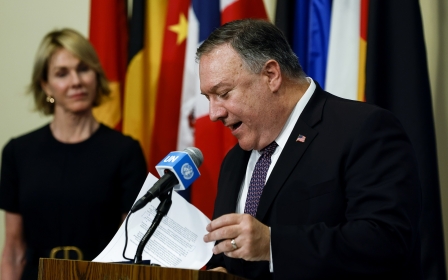Iran's rial hits new low against dollar as economy stumbles

The Iranian currency hit a new low against the US dollar on Saturday as the economy buckles under pressure from the Covid-19 pandemic and sanctions imposed by the United States.
The dollar was selling for as much as 304,300 rials on the unofficial market, up from 295,940 on Friday, according to the foreign exchange site Bonbast.com.
The economic daily Donya-e-Eqtesad's website gave the dollar rate as 303,300, up 6,000 rials from Friday.
The currency has lost about 56 percent of its value in 2020 as a drop in oil prices has deepened the economic crisis in the country, which also has the highest Covid-19 death toll in the Middle East, standing at 28.098.
Iran's Covid-19 cases surged again in mid-September, and official numbers have shown new records of daily death tolls and new cases.
New MEE newsletter: Jerusalem Dispatch
Sign up to get the latest insights and analysis on Israel-Palestine, alongside Turkey Unpacked and other MEE newsletters
The official exchange rate, used mostly for imports of state-subsidised food and medicine, is 42,000 rials per dollar.
The United States on Thursday slapped fresh sanctions on Iran's financial sector, targeting 18 banks to further choke off Iranian revenues as Washington ramps up pressure on Tehran weeks ahead of the US election. The sanctions also target non-Iranian institutions that trade with the banks.
The latest series of sanctions defy European allies, which warned that the move would limit Tehran's ability to purchase humanitarian imports amid the currency crisis and the pandemic.
A senior European official told the Washington Post that the UK, France and Germany had expressed fears that the new sanctions would freeze Iran's foreign assets, "thus further exacerbating the shortage of foreign currency to pay for humanitarian imports".
Last year, the Islamic Republic imported $1bn worth of medical goods and grain worth $3.5bn.
Iran has also been suffering from a shortage of influenza vaccines due to the sanctions. Health experts had warned that the vaccine shortage for high-risk groups would lead to an increase in the Covid-19 death toll in Iran.
After the sanctions were announced, Iranian Foreign Minister Mohamed Javad Zarif accused the US of wanting to "blow up our remaining channels to pay for food & medicine".
Iranian central bank governor Abdolnaser Hemmati, however, dismissed the sanctions as political propaganda and played down their practical impact.
"What needs to be decided in this regard was decided two years ago," Hemmati was quoted as saying by Iranian media. "Therefore, the banks that were party to the agreement with Iran have decided to continue trading with Iran."
Analysts said the sanctions may further deter European and other foreign banks from working with Iran, even for permitted humanitarian transactions
Middle East Eye delivers independent and unrivalled coverage and analysis of the Middle East, North Africa and beyond. To learn more about republishing this content and the associated fees, please fill out this form. More about MEE can be found here.




